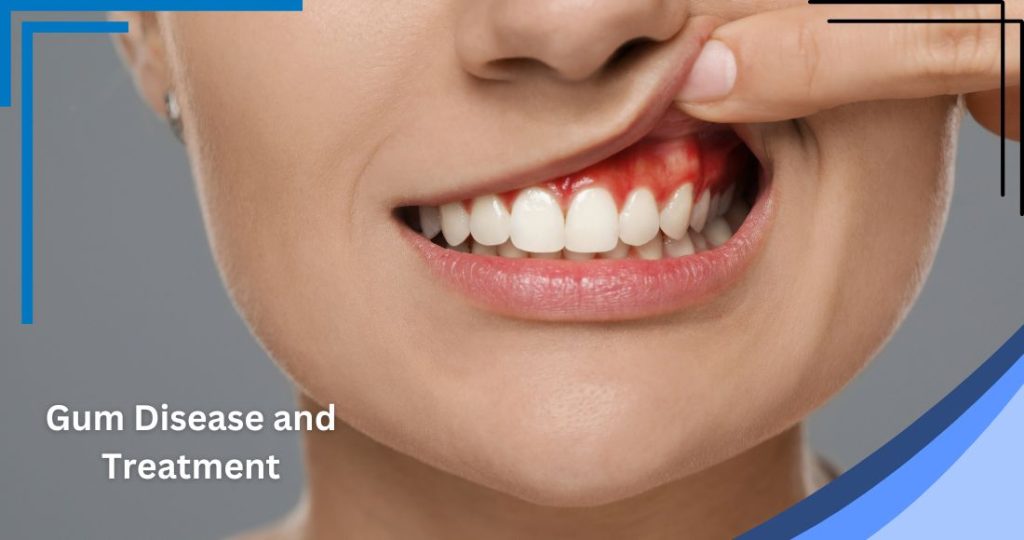Periodontal Disease Treatment in Hamilton, NJ: Protecting Your Gums and Overall Health
Periodontal disease affects millions of Americans and is one of the leading causes of tooth loss in adults. If you’re dealing with gum disease in Hamilton, New Jersey, understanding the condition and available treatment options is crucial for preserving your oral health and potentially your overall well-being. Modern periodontal therapy can effectively manage and often reverse the effects of gum disease when caught early.
Understanding Periodontal Disease
Periodontal disease is a bacterial infection that affects the gums and supporting structures of the teeth. It begins with gingivitis, the mildest form of gum disease characterized by red, swollen, and bleeding gums. If left untreated, gingivitis can progress to periodontitis, where the infection spreads below the gum line and begins destroying the tissues and bone that support your teeth.
The primary cause of periodontal disease is the accumulation of plaque, a sticky film of bacteria that constantly forms on your teeth. When plaque isn’t removed through proper brushing and flossing, it hardens into tartar, which can only be removed by professional dental cleaning. The bacteria in plaque and tartar produce toxins that irritate the gums and trigger an inflammatory response.
Risk Factors for Periodontal Disease
Several factors can increase your risk of developing periodontal disease. Poor oral hygiene is the most significant risk factor, but genetics also play a role in determining susceptibility. Smoking and tobacco use significantly increase the risk and severity of gum disease while also interfering with healing after treatment.
Certain medical conditions can also contribute to periodontal disease development. Diabetes, for example, increases the risk of infections throughout the body, including the gums. Hormonal changes during pregnancy, menopause, or menstruation can make gums more sensitive and susceptible to inflammation.
Medications that reduce saliva flow can also increase periodontal disease risk, as saliva helps wash away bacteria and food particles. Stress weakens the immune system, making it harder for your body to fight off infections, including those affecting the gums.
Signs and Symptoms of Gum Disease
Early detection of periodontal disease is crucial for successful treatment. Common signs include gums that bleed during brushing or flossing, persistent bad breath, red or swollen gums, and gums that have pulled away from the teeth creating pockets. You might also notice loose teeth, changes in your bite, or changes in the fit of partial dentures.
Pain isn’t always present in the early stages of periodontal disease, which is why regular dental checkups are essential. By the time pain occurs, the disease may have progressed to a more advanced stage requiring more intensive treatment.
Non-Surgical Periodontal Treatment Options
The first line of treatment for periodontal disease typically involves non-surgical approaches. Scaling and root planing, often called “deep cleaning,” is a thorough cleaning procedure that removes plaque and tartar from above and below the gum line. The root surfaces are then smoothed to remove bacterial toxins and create a clean surface for gum reattachment.
This procedure is typically performed under local anesthesia to ensure patient comfort. Following scaling and root planing, we may recommend antimicrobial therapy to help eliminate remaining bacteria and promote healing. This might include antibiotic gels applied directly to the periodontal pockets or oral antibiotics.
Maintenance therapy is crucial after initial treatment. More frequent cleanings, typically every three to four months, help prevent reinfection and monitor healing progress. This ongoing care is essential for long-term success in managing periodontal disease.
Surgical Treatment Options
When non-surgical treatment isn’t sufficient to control periodontal disease, surgical intervention may be necessary. Flap surgery involves lifting the gums to remove tartar deposits in deep pockets and then repositioning the gums to fit snugly around the teeth. This reduces pocket depth and makes it easier to maintain clean areas.
Bone and tissue grafts may be recommended when periodontal disease has destroyed significant amounts of bone or gum tissue. Bone grafts help regenerate lost bone, while soft tissue grafts can restore gum coverage over exposed roots and improve the appearance of your smile.
Guided tissue regeneration uses special materials to encourage your body’s natural ability to regenerate bone and tissue. This advanced technique can help restore some of the support structures lost to periodontal disease.
The Connection Between Gum Disease and Overall Health
Research has established strong links between periodontal disease and various systemic health conditions. The bacteria and inflammation associated with gum disease can enter the bloodstream and potentially contribute to heart disease, stroke, and diabetes complications.
Pregnant women with periodontal disease may have an increased risk of premature birth and low birth weight babies. The inflammatory response triggered by gum disease may affect pregnancy outcomes, making periodontal health particularly important during pregnancy.
For diabetic patients, periodontal disease can make blood sugar control more difficult, while uncontrolled diabetes can worsen gum disease. This creates a cycle where each condition negatively impacts the other, emphasizing the importance of managing both conditions simultaneously.
Prevention and Maintenance
Preventing periodontal disease is always preferable to treating it. Excellent daily oral hygiene, including proper brushing technique and daily flossing, forms the foundation of prevention. Regular dental cleanings and checkups allow for early detection and professional removal of plaque and tartar.
Lifestyle factors also play important roles in prevention. Quitting smoking, managing stress, eating a balanced diet, and controlling medical conditions like diabetes all contribute to better periodontal health.
For patients who have received periodontal treatment, ongoing maintenance is crucial. This includes keeping all scheduled maintenance appointments, following home care instructions, and promptly addressing any changes in gum health.
Don’t let periodontal disease threaten your oral health and overall well-being. If you’re experiencing signs of gum disease in Hamilton, NJ, call 609-890-9000 to schedule a comprehensive periodontal evaluation. Our experienced team provides both non-surgical and surgical treatment options to restore your gum health. Schedule your consultation today and take the first step toward healthier gums and a healthier you.

